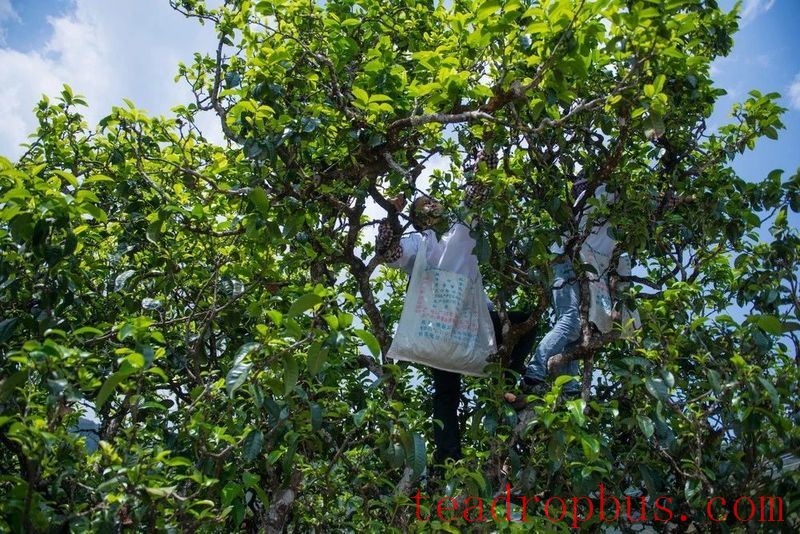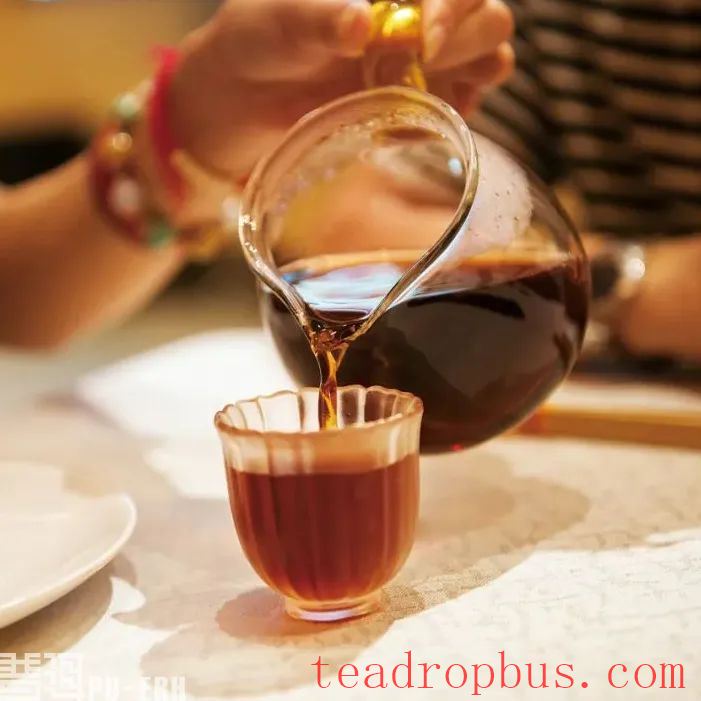
While Western medicine is effective and fast-acting, its side effects and potential damage to the liver and kidneys cannot be ignored. Modern medicine has proven that a cold is a self-limiting disease, and taking medication only alleviates symptoms rather than curing them. The body's immune system is what ultimately heals a cold. Given this, choosing an ecological and safe supplementary therapy that reduces the burden on the liver and kidneys during a cold can be a healthier approach. As the saying goes, “Tea is the source of medicine,” and tea therapy is documented in many ancient Chinese medical texts.
From a traditional Chinese medicine perspective, the cause of a cold is primarily due to exposure to wind pathogens, often occurring when there are sudden changes in weather or imbalances between heat and cold. Colds can also occur from improper living conditions, improper diet, exposure to rain, or fatigue, which can weaken the body's defenses, allowing wind pathogens to invade. Depending on the nature of the external pathogen, colds are generally categorized into two types: wind-cold and wind-heat. The key to preventing colds is to strengthen the body's immune function. Studies have shown that regular consumption of Pu'er tea can increase the number and activity of white blood cells and lymphocytes, as well as promote the formation of leukocytosis in spleen cells, thereby enhancing the body's immune function.

This article was written by the author while experiencing a cold, serving as a personal experiment to document the effectiveness of tea therapy.
Symptoms: Runny nose, no sweating, feeling cold, sore throat, and mild coughing
Diagnosis: Wind-cold common cold
Prescription: Su Ye Qiang Huo Tea (Lemongrass and Chinese Angelica Tea)
Ingredients: 9 grams each of raw Pu'er tea, perilla leaves, and Chinese angelica
Preparation: Grind the ingredients coarsely. Steep in boiling water and drink frequently. One dose per day.
Principles of Tea Therapy: Perilla leaves are pungent and warm, capable of inducing sweating and relieving surface symptoms. Chinese angelica is pungent, bitter, and warm, functioning to dispel wind, disperse cold, and relieve pain. Tea is bitter and cold, which helps to clear heat and descend turbid qi, balancing the warming properties of perilla and Chinese angelica. All three ingredients have antiviral, antibacterial, anti-inflammatory, and analgesic effects.
Experience of Tea Therapy:
1. Easy to take without the need for decoction, just like drinking tea on a regular basis. Consumed six cups on the first day, and by evening, the sore throat had largely disappeared. A good night's sleep resulted in significant improvement the next morning.
2. No Western medicines were taken during the process of tea therapy, avoiding the drowsiness caused by such medications.
3. The Herbs can be obtained at any pharmacy and are very inexpensive. One dose costs less than $0.30.
On the second day of tea therapy: Mild coughing and runny nose persisted during the day.
Prescription: Cong Jiang Xing Ren Tea (Green Onion, Ginger, and Apricot Kernel Tea)
Ingredients: 3 grams of ripe Pu'er tea, 3 green onion stalks with roots, 3 slices of ginger, 9 grams of apricot kernels, and 15 grams of rock Sugar.
Preparation: Boil the first four ingredients and extract the juice. Add rock sugar and drink it hot before going to bed.
Experience of Tea Therapy:
1. Slight perspiration occurred after sleeping, and all symptoms were significantly reduced upon waking up. After a warm shower, the condition was nearly resolved.
2. All ingredients are common food items easily found at home, making it simple to prepare.
3. Best to use a clay pot for decocting. Use a ratio of 1:5 water to ingredients. Once boiling, simmer for half an hour.
On the third day of tea therapy: The cold was essentially cured, and another dose of medicinal tea could be taken for consolidation and adjustment.
Prescription: Xing Ren Milk Tea (Apricot Kernel Milk Tea)
Ingredients: 3 grams of ripe Pu'er tea, 10 apricot kernels, 6 grams of rock sugar, and fresh milk
Preparation: Mix 50 ml of ripe Pu'er tea with 200 ml of fresh milk to make Pu'er milk tea. Crush the apricot kernels with the rock sugar and place them in a covered cup. Pour boiling water over them, let it steep for 15 minutes, then strain the liquid and mix it into the milk tea. Take twice daily on an empty stomach.
Principles of Tea Therapy: Fresh milk and ripe Pu'er tea nourish the spleen and stomach, strengthening the constitution, while apricot kernels and rock sugar soothe the lungs and stop coughing, providing a dual benefit of medicine and food.
Experience of Tea Therapy:
1. All cold symptoms completely disappeared, and full recovery was achieved.
2. Simple ingredients and easy preparation.
3. Delicious taste, suitable for daily consumption.

Over three days, the author's cold was cured, with total expenses being less than the cheapest Western cold medication. There was no drowsiness, and mental clarity was maintained, not affecting normal work. Personal experience confirms that Pu'er tea therapy can effectively alleviate symptoms and assist in treating the common cold.
Important Note: Tea therapy is suitable for the common cold. For severe cases, medical consultation and following a doctor's advice are recommended.
Editor's Recommendation:
The above experiences are more applicable to wind-cold common cold. For wind-heat common cold, the editor recommends the following prescription: Er Ye Bo He Tea (Two Leaves and Mint tea)
Ingredients: 10 grams of raw Pu'er tea (choose high-quality young leaves), 5 grams each of Chrysanthemum and mulberry leaves, 30 grams of bamboo leaves, and 3 grams of mint.
Preparation: Combine all ingredients in a Teapot and steep in boiling water for one minute. Drink while hot, avoid wind and cold after consumption. One dose per day.
Indications: Wind-heat common cold, characterized by fever, headache, red eyes, sore throat, red tongue, and yellow coating.
Principles of Tea Therapy: Modern pharmacological studies show that mint induces sweating, relieves fever, and has antimicrobial and antiviral effects. Mulberry leaves are bitter, sweet, and cold, dispersing wind-heat. Chrysanthemum is pungent, sweet, and slightly bitter, and slightly cold, which can disperse wind and dissipate heat, as well as clear heat and detoxify, clearing the head and eyes and benefiting the throat. Bamboo leaves are pungent, sweet, and cold, clearing heat and eliminating annoyance, cooling and dispersing the wind-heat in the upper energizer. Raw Pu'er tea is bitter and cold, enhancing the wind-dispersing and heat-clearing effects of this formula.
If there are any copyright issues, please contact us for removal.